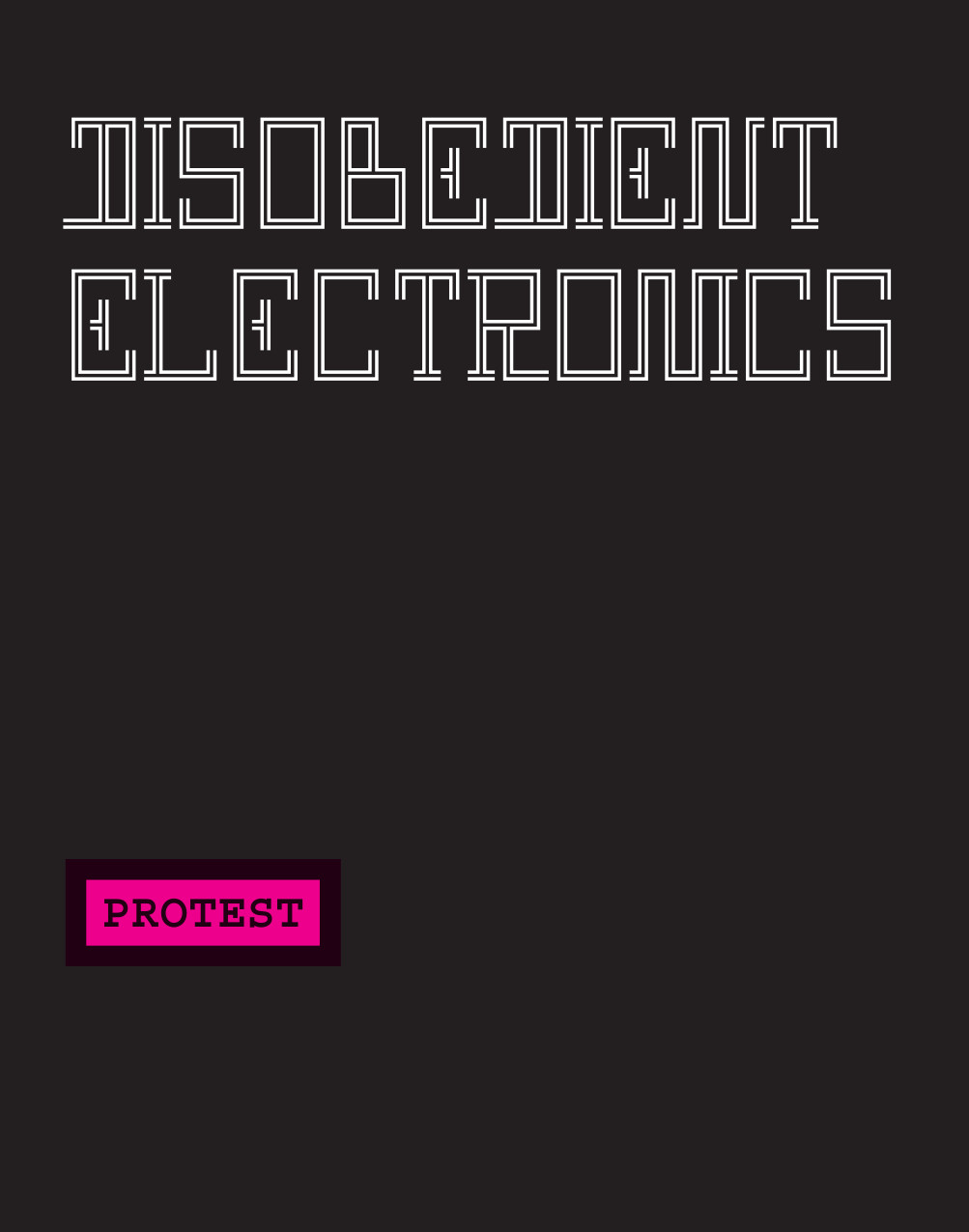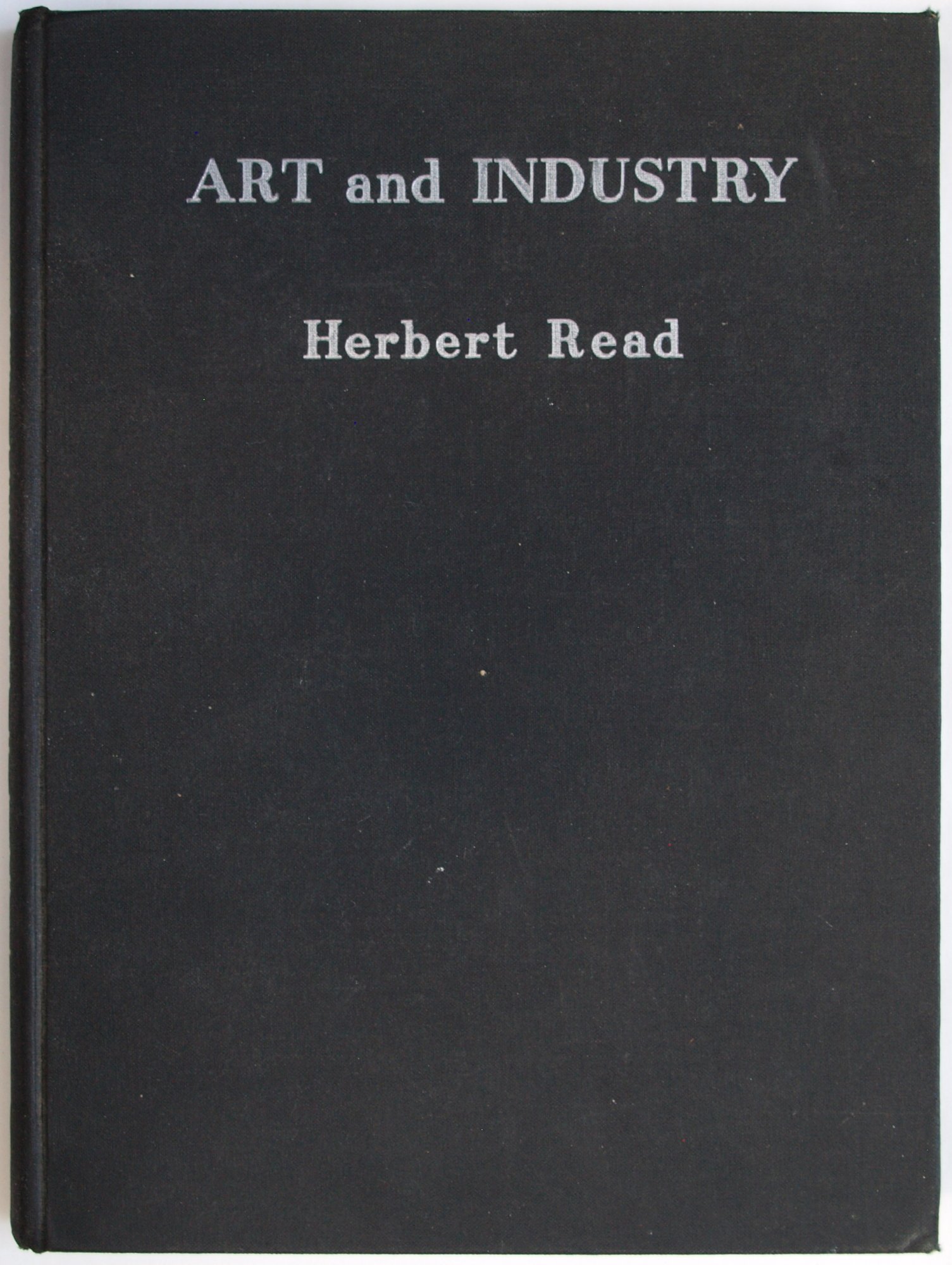Disobedient Electronics: Protest (2017)
Filed under zine | Tags: · critical making, design, disobedience, electronics, engineering, industrial design, technology, wearable computing

Disobedient Electronics: Protest “highlights confrontational work from industrial designers, electronic artists, hackers and makers from 10 countries that disobey conventions. Topics include the wage gap between women and men, the objectification of women’s bodies, gender stereotypes, wearable electronics as a form of protest, robotic forms of protest, counter-government-surveillance and privacy tools, and devices designed to improve an understanding of climate change.”
Edited by Garnet Hertz
Self-published in Vancouver, 2017
PDF edition, January 2018
58 pages
via fcr
Reading Design (2013–)
Filed under online resource | Tags: · architecture, critical design, design, fashion design, graphic design, industrial design, theory, urbanism

“Reading Design is an online archive of critical writing about design. The idea is to embrace the whole of design, from architecture and urbanism to product, fashion, graphics and beyond. The texts featured here date from the nineteenth century right up to the present moment but each one contains something which remains relevant, surprising or interesting to us today.
Reading Design is not a magazine or a journal and many or most of the texts here will have been published before. They might be papers, transcriptions of lectures, articles, essays, academic texts, photo essays, sketches or blog posts but the aim is to collate these texts in one place to build a resource which we hope will become invaluable to designers, academics, researchers, professionals and all those with any interest in design at all. It is a library of design which we hope is able to use the enormous capacity of the internet in a way in which it is not currently being used.
Reading Design is a non-profit making venture aiming to make pivotal texts available to all and to provoke, delight, enlighten, inspire, inform and occasionally infuriate.”
Editor-in-chief: Edwin Heathcote
Associate editor: Krisztina Heathcote
Herbert Read: Art and Industry: The Principles of Industrial Design (1934)
Filed under book | Tags: · art, art theory, design, industrial design, machine, modernism

One of the most important texts promoting Modernism published in Britain. The layout was designed by former Bauhaus tutor Herbert Bayer. “In this text, the designer is portrayed as an abstract artist working in industry, reconciling elements of design such as materials, form, colour, and proportion with modern mass-production technology. Read felt that the designer should play a central role in modern manufacture, rather than the low-paid, subservient role that generally prevailed at the time.”
Publisher Faber and Faber, London, 1934
Reprint Harcourt, Brace and Company, New York, 1935
143 pages
via Joseph Allen
Review: Listowel (Philosophy, 1934).
Commentary: Robin Kinross (Journal of Design History, 1988).
PDF (146 MB, no OCR)
Comment (0)
